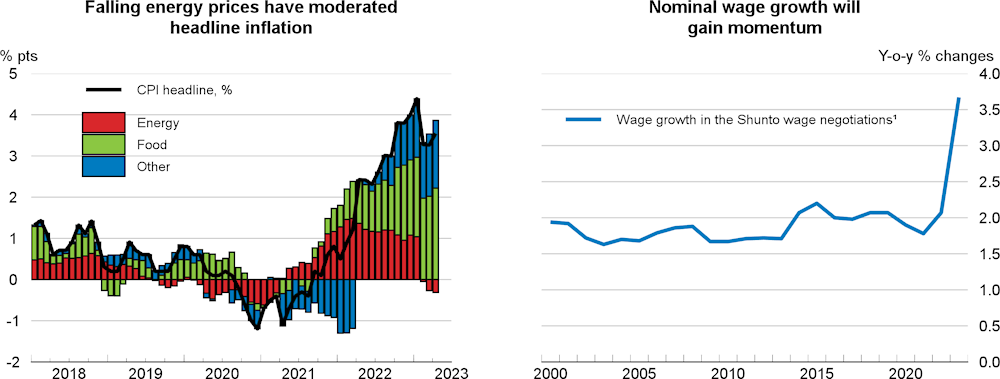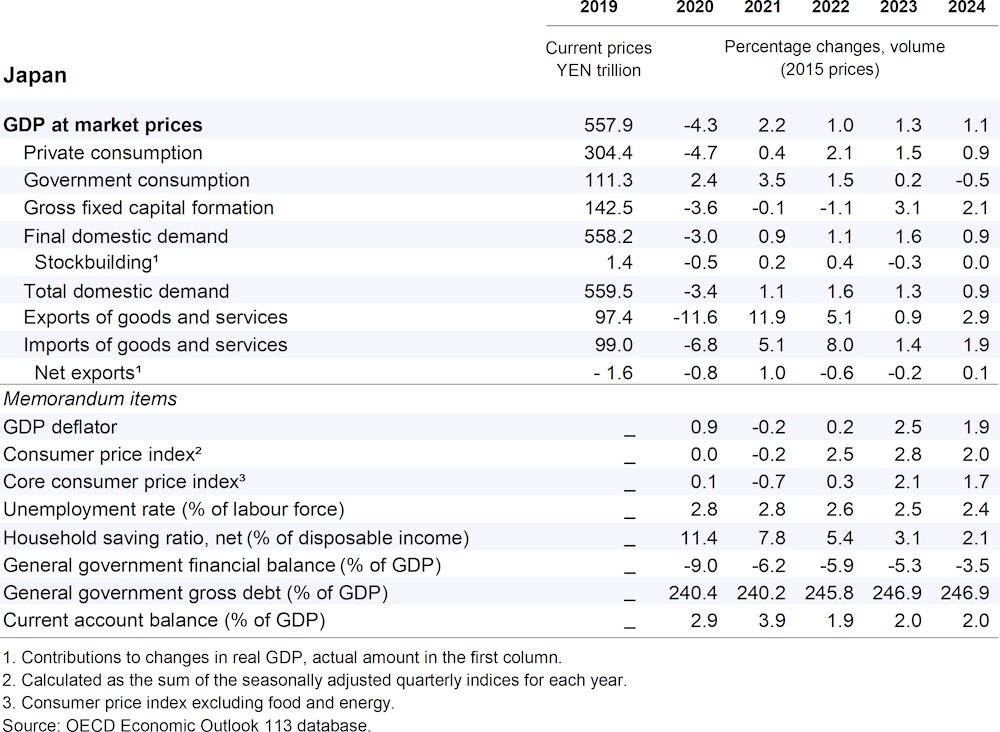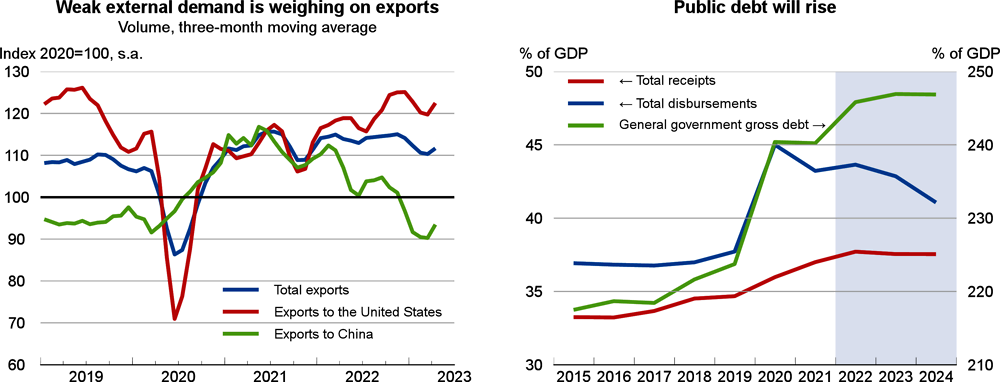Real GDP is projected to grow by 1.3% in 2023 and 1.1% in 2024, mainly driven by domestic demand. Government support to help households cope with the energy price shock and increased defence spending will boost consumption and investment. Core inflation (excluding energy and food) will increase towards 2% as wage growth gains momentum and spreads to SMEs in 2024. The labour market will remain tight, with the unemployment rate edging down to 2.4% in 2024.
Given limited fiscal space, and the need to foster lower energy use, energy subsidies should become more targeted, with a view to eventually phasing them out. Additional structural spending and revenue measures are needed, especially given the fiscal pressures from an ageing population. A credible fiscal framework is also required to put the debt-to-GDP ratio on a clear downward path. Further modifications to the conduct of yield curve control can increase flexibility and lower the risks of abrupt changes later. The Bank of Japan should communicate its current and future monetary stance clearly and in a timely manner. Policies to boost productivity and reduce the gender wage gap are needed to improve well-being and medium-term fiscal sustainability.



